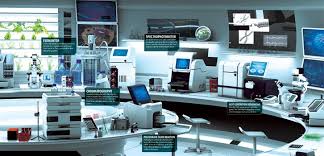Virtual Reality: Reshaping Medical Training
Developments in technology have evolved radically, particularly the ways in which human beings perform their day-to-day actions. Therefore, in the learning of medical practice such as surgery, high-tech improvements have had a massive influence on the means of identifying and treating diseases. Doctors require practice to execute surgeries. Existing methods of surgical training have various challenges such as, time efficiency, costs, and patient safety. Furthermore, as innovative styles of medical procedures and surgery are developing swiftly, residents require additional effective and resourceful approaches of learning operating techniques of learning(Haluck, & Krummel, 2000).
With recent advances in virtual reality technology within the education field, surgical residents can now train and develop further their skills in 3D virtual settings, with no need to depend on merely expensive, unmanageable corpses. The virtual reality business marketplace is estimated to grow to $15.9 billion by 2019, due to high demand for educational and scientific purposes, tourism, entertainment, language immersion, architecture and design, etc. (Martín-Gutiérrez, Mora, Añorbe-Díaz & González-Marrero,2017).
Virtual reality exercises aid in training fundamental skills to doctors by utilizing a simulated setting to develop their ability and efficiency at executing methods such as surgery. These are applied to assess a specialist's proficiencies for accomplishing detailed jobs. World recognized medical universities such as Brown, Harvard and UCSF have started to apply virtual reality technologies in their med school programs, as well as encouraging the use and adaptation of ever-changing high-tech tools to facilitate learning and performance.
As part of our GAMECHANGERS series, we will introduce you to some of the most influential start-ups in the field of medical virtual reality in the coming days.
The links below are articles of the universities mentioned above, and how virtual reality is changing the world of education in the medical field, and how they apply it to their program:
Additional Academic articles:
References:
Haluck, R. S., & Krummel, T. M. (2000). Computers and virtual reality for surgical education in the 21st century. Archives of surgery, 135(7), 786-792.


Thanks!
ReplyDelete